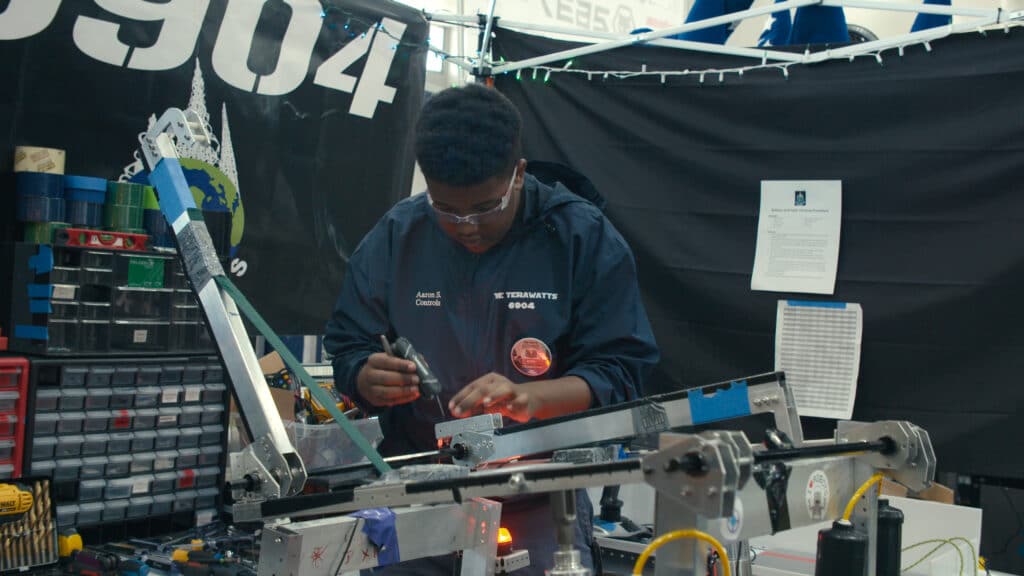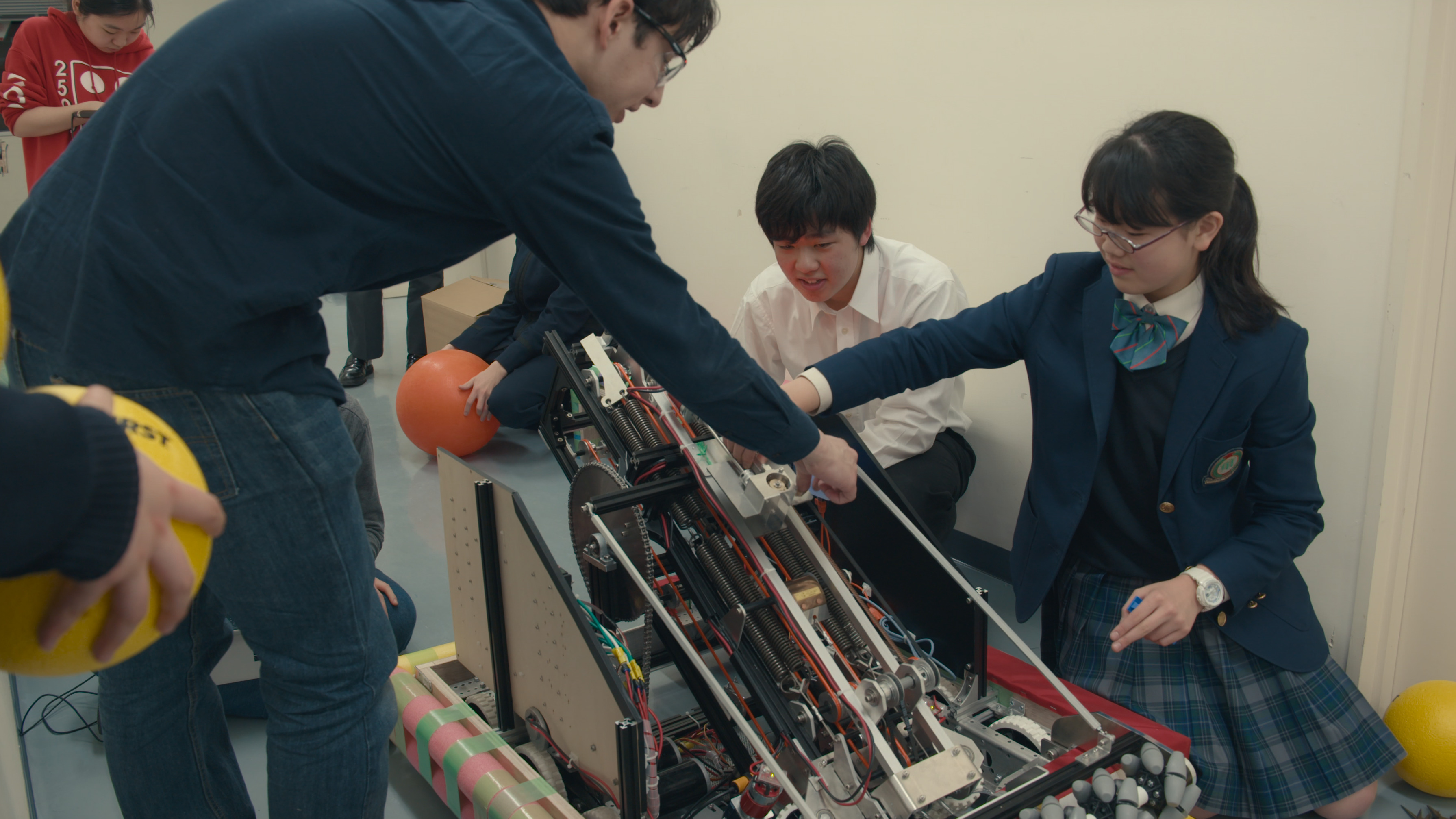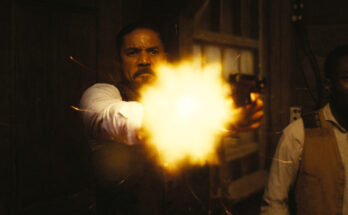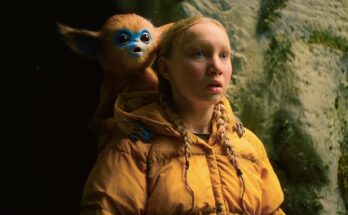Want to hear more from the actors and creators of your favorite shows and films? Subscribe to The Cinema Spot on YouTube for all of our upcoming interviews!
Managing editor & film and television critic with a Bachelor's of Arts in English Literature with a Writing Minor from the University of Guam. Currently in graduate school completing a Master's in English Literature.
You might know Gillian Jacobs as the character, Britta Perry, from the hit NBC sitcom series, Community. You might also know her from other iconic films and television programs. This week, she has an awe-inspiring documentary coming from Disney’s Disney+ streaming service coming later this week, titled More Than Robots. Let me tell you that what this film showcases is a change not just in your local community, but in society on a global scale. This is the first feature-length film and my first documentary to cover at this year’s South by Southwest (SXSW) festival.
In this review, I will be discussing More Than Robots. There will be no spoilers here, as the title of this article suggests. Nonetheless, please read ahead at your own discretion to avoid any possible revelations.

Plot Synopsis
According to Disney and SXSW, here is the synopsis for the SXSW/ Disney+ documentary, More Than Robots, directed by Gillian Jacobs.
“More Than Robots” follows four teams of teenagers from around the world as they prepare for the 2020 FIRST® Robotics Competition. Get to know teams from Los Angeles, Mexico City and Chiba, Japan as they work towards the goal of taking their unique designs all the way to the highly competitive global championships. Although they are faced with overcoming challenges along the way, such as having limited resources within their community or putting everything on hold because of a world-wide pandemic, the kids persevere and learn that there is a lot more to the competition than just robots.
Disney and SXSW
Discussion
More Than Robots is a unique documentary that is lightyears greater than I had expected going in. Jacobs and her team cover a lot of ground for a narrative that is an hour and a half long. They introduce us to a diversity of young people from around the world; including Jacob from a team called The Vitruvian Bots 4201, Aaron from TeraWatts 6904, Kanon from Sakura Tempesta 6909, and Mariana from Nautilus 4010. They all come from different backgrounds, and it isn’t just the neighborhood, country, or class. Jacob is a coder, Aaron is proficient in putting together robot parts, Kanon is a college student from St. Paul, Minnesota who mentors Japanese students, and Mariana helps with speeches as part of one of many Chairman’s teams.
These young people unite through a common cause: FIRST (For Inspiration and Recognition of Science and Technology), spearheaded by Dean Kamen. He explains that this non-profit organization is “[a] worldwide program that combines the high-intensity world of sports with STEM education, science, technology, engineering, and math”. Every year FIRST holds competitions where each group of young people must create their very own robot. However, the kids’ main objective is not to win at the sport but rather learn from themselves and each other during the process. Some skills they gain are communication, cooperation, and coordination, as well as empathy, responsibility, and overall, “gracious professionalism”, all of which I admire about Gillian Jacobs’s film.
In this documentary, the kids’ challenge has a Star Wars theme to it, where they must build robots that shoot yellow balls (power cells) through holes for points and lift themselves up on a shield generator switch by maintaining a successful balance.
I love that the editing team takes every story that the director of photography recorded and weaved them all into an undulating narrative. There is so much that I would like to discuss, but just let’s dive into the theme of Jacobs’s project.
We Are Machines As Well
As Italian sociologist, Maurizio Lazzarato, suggests in his critical text, Signs and Machines, we are each an individual cog in a machine group that, together with other machines, make up the larger mega-machine that we call society. He writes, “In humans-machines systems, where ‘numerous human and non-human elements interact … the components of all work can be expressed in terms of information.'” Of course, there is more to it than that; as More Than Robots implies, we all have a part in society whether we are consciously aware of it or not. Simply put, we are all desire machines.
For example, Jacob thinks differently than other people. While it may appear that most kids express themselves in mere words, Jacob thinks “in feelings and numbers”. However, by joining a group of other kids, over time, he learns how to fit himself into the big puzzle as a coder. Similarly, Mariana cites music as “a tool that helps you speak when you don’t have the words”. Lazzarato calls this social subjection, that is, assigning oneself a role in the machine, much in the same way that robots are constructed through their various components. Aaron explains it best, that as subjects, it is okay to embrace change. He asserts, “[Y]ou don’t know what you like or what your passion is until you try new things”.
This leads to another system of critical thought: post-humanism. While transhumanism is defined as the use of technology — that is, human invention — to enhance our living, for example, with prosthetics, it is post-humanism that aims to use technology to improve the world and its ecosophy around us and establish the grounds for proper co-existence. Of what, you may ask? The human species, machines, and even animals and plants.

The Crew
Jason Sterman, Brian McGinn, and David Gelb serve as the producers of the documentary. Michael Garcia and Christine Beebe are the executive producers of the film.
Jacqui Lopez is the co-executive producer, while Jamie McBriety serves as the co-producer. Chamberlain Staub serves as the associate producer. Arielle Kilker serves as the supervising producer. Emily Van Bergen serves as the story producer of the documentary.
Jared Martin serves as the editor of the Disney+ film, while JJ Degen and Lauren Brinkman are the assistant editors. Andy McAllister serves as the supervising editor.
Jerry Henry serves as the cinematographer of the documentary. Stephanie Economou curates the original music.
Alanna Maeve Sargent is the Mexico translator of the film, while Hirotaka Shimoyama serves as the Japan translator.
Final Thoughts on the More Than Robots Documentary
I had no idea that FIRST existed. Indeed, as TeraWatts mentor Fatima says, it’s “a hidden treasure”, that you can find someone who can look like you contributing something good to the world. This is one of the first steps in becoming a leader and an influence on others. The young adults in More Than Robots learn that they will inevitably run into mistakes but do not allow this to stop them. Instead, they leave themselves more room for improvement. As Kanon’s co-mentor, Dr. Tomiyama of the Chiba Institute of Technology states, “If you’re making robots, you make mistakes again and again and again before the robot really works”. In the context of our current socio-political situation, the “robot” is society.
While this is a documentary, I will not reveal the outcome of the FIRST competition itself. However, I will say that these young people responded to the arrival of the Coronavirus-19 pandemic with perseverance. They found a way to continue contributing to their community and society. More Than Robots also highlights teams from Libya; Atlanta, Georgia; Novi and Babbitt, Minnesota; Herat, Afghanistan. It is incredible what you can do when you are not alone. If you are looking for something to watch either at SXSW or on Disney+, this is a film I highly recommend.
More Than Robots will be available to stream via Disney+ on March 18th!
Will you be seeing this film? Let us know! For more documentary-related news and reviews visit and follow The Cinema Spot on Facebook, Twitter, and Instagram!
Managing editor & film and television critic with a Bachelor's of Arts in English Literature with a Writing Minor from the University of Guam. Currently in graduate school completing a Master's in English Literature.





16 Comments on “Gillian Jacobs’s ‘More Than Robots’ (SXSW 2022) Documentary Non-Spoiler Review – How To Make A Change Through Post-Human Machines”